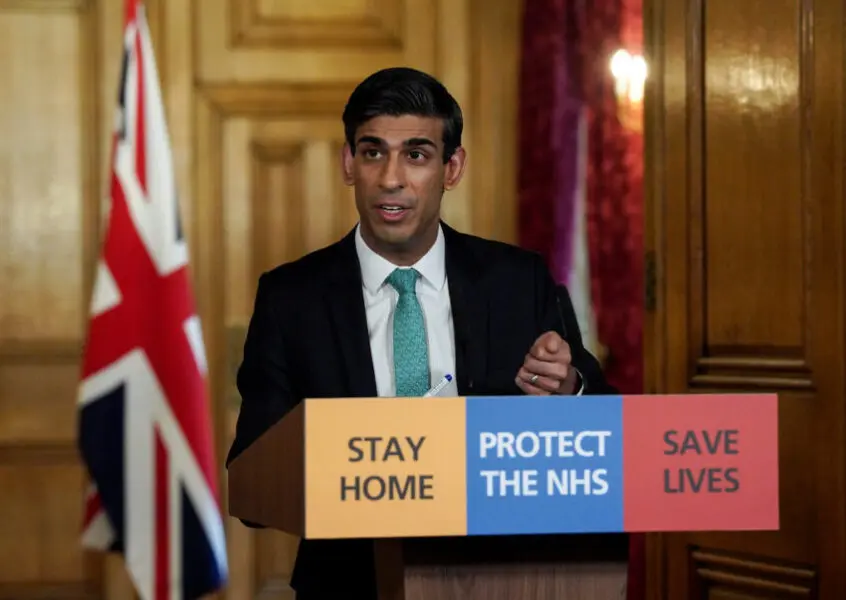Rishi Sunak’s former Goldman Sachs boss is to take on a key Treasury post helping the chancellor as he battles to keep Britain’s economy functioning during the coronavirus pandemic.
It is understood that Richard Sharp, who spent more than two decades at the Wall Street banking giant, is to become a strategic adviser to Mr Sunak.
Sources said he would have a broad remit to counsel the chancellor on all areas of economic policy following a month in which some entire industries have been forced to put themselves into hibernation.
The role, which requires Cabinet Office approval, will be unpaid and is expected to last for the duration of the COVID-19 crisis.
Mr Sharp’s appointment, which was confirmed by insiders this weekend, will make him – at least temporarily – one of the most influential figures in Whitehall.
“He will be the Treasury’s eminence grise during the pandemic,” said one.
“Richard was his mentor at Goldman, as well as his direct boss.”
Mr Sunak worked for Mr Sharp prior to the future chancellor’s departure from Goldman in 2004.
A public statement confirming Mr Sharp’s role could be made as soon as next week.
Sources pointed out that he also had close relationships with other decision-makers who will be central to Britain’s long-term economic recovery.
He was a member of Boris Johnson’s economic advisory council during the prime minister’s tenure as mayor of London.
The former Goldman partner also sat on the Bank of England’s financial policy committee (FPC) for more than five years, putting him at the heart of UK economic policy-making.
That role also placed him in close proximity to Andrew Bailey, the former head of both main UK financial regulators and recently installed as governor of the Bank of England.
Since stepping down from the FPC, Mr Sharp has taken directorships at several private companies, including Oncimmune, a developer of cancer treatments.
He has a reputation as a sharp, independent thinker and a safe pair of hands, according to former colleagues.
In 2017, he gave a speech called ‘It pays to be paranoid’ in his role as an FPC member, in which he said: “The financial crisis illustrates the risk of ignoring fat tails: for example, some claimed they were seeing market movements so rare their models predicted it’s more likely to win the lottery 20 times in a row than to experience the losses that befell them.
“To paraphrase [Oscar] Wilde, this looks more like collective carelessness than misfortune.”
Mr Sharp, who is a former Conservative Party donor but has been politically independent since taking his role at the Bank of England, is expected to be a central figure in shaping the chancellor’s thinking about the UK’s long-term economic strategy.
This week, it emerged that the Treasury had agreed a deal with the Bank of England’s ‘ways and means facility’ to finance additional day-to-day government spending that will be required as a result of the coronavirus crisis.
Mr Sunak has signalled a willingness to rapidly adjust key policies in the face of criticism in recent weeks, modifying the terms of the Coronavirus Business Interruption Loan Scheme for small businesses after complaints that it was too restrictive.
The chancellor has authorised hundreds of billions of pounds in loan guarantees, wage subsidies, replacement income for the self-employed and individual sector bailouts.
There remain concerns, however, that the various emergency aid schemes still leave thousands of companies outside their scope, and that money for those which are successfully applying is reaching them too slowly.
Data on Britain’s first-quarter economic performance is likely to show a contraction, while the three months to the end of June will reflect a catastrophic plunge in GDP as a result of the pandemic.
Mr Sharp and the Treasury both declined to comment on Saturday.


